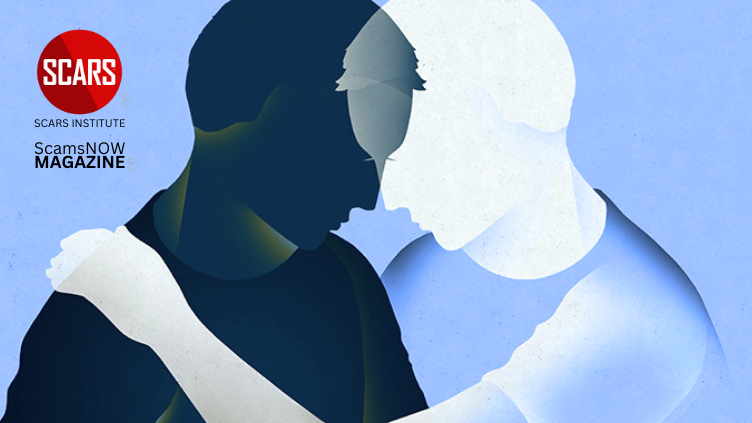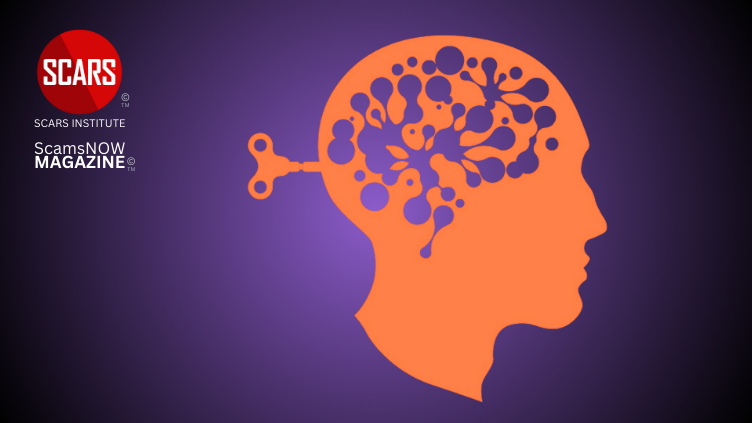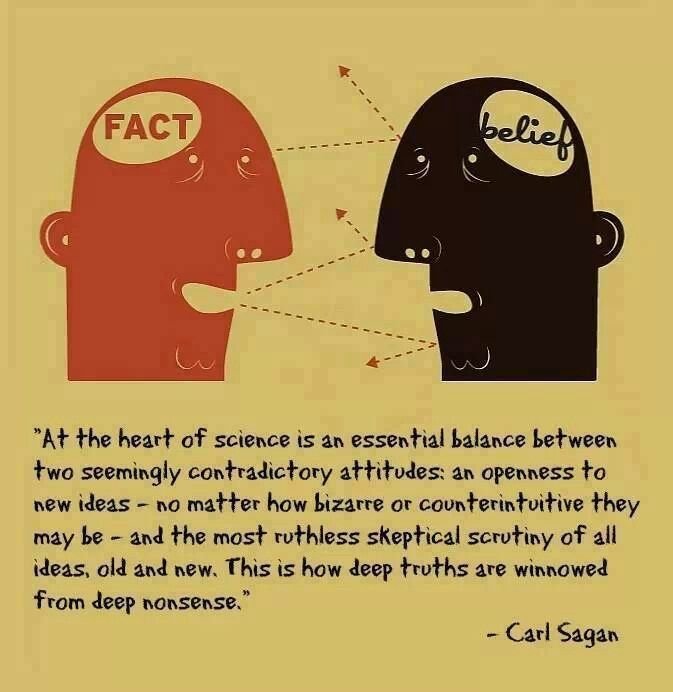Motivated Reasoning – A Cognitive Bias
A Cognitive Bias That Deeply Affects Scam Victims Especially During Recovery
Primary Category: Scam Victim Recovery Psychology
Authors:
• Vianey Gonzalez B.Sc(Psych) – Licensed Psychologist, Specialty in Crime Victim Trauma Therapy, Neuropsychologist, Certified Deception Professional, Psychology Advisory Panel & Director of the Society of Citizens Against Relationship Scams Inc.
• Tim McGuinness, Ph.D., DFin, MCPO, MAnth – Anthropologist, Scientist, Polymath, Director of the Society of Citizens Against Relationship Scams Inc.
About This Article
Motivated reasoning is a cognitive bias where individuals interpret information to align with their desires or beliefs, often at the expense of objectivity.
Scam victims may rely on this bias to ignore red flags during the scam or rationalize decisions that go against their best interests. Even during recovery, motivated reasoning can lead them to overestimate their progress by focusing on minor successes and avoiding deeper emotional work.
Recognizing and addressing this bias is key to making informed decisions and achieving genuine recovery.

Motivated Reasoning and Its Impact on Scam Victims, Especially During Recovery
What is Motivated Reasoning?
Motivated reasoning is a cognitive bias where individuals process information in a way that supports their existing beliefs, desires, or emotions rather than seeking objective truth. In other words, people engage in motivated reasoning to align facts with what they want to believe, ignoring or discounting evidence that challenges their views. This bias can be particularly harmful to scam victims, as it can prevent them from recognizing the warning signs of a scam, acknowledging that they have been deceived, or making sound decisions to recover from the experience.
What Happens in the Brain During Motivated Reasoning?
Motivated reasoning is driven by emotional responses in the brain, particularly involving areas like the amygdala, which processes emotions such as fear, anger, and hope, and the prefrontal cortex, which is responsible for decision-making and reasoning. When someone encounters information that aligns with their desires or beliefs, the brain rewards them with a sense of comfort or pleasure. This reaction is related to the release of dopamine, a neurotransmitter linked to feelings of satisfaction.
On the other hand, when confronted with information that contradicts their beliefs or expectations, individuals experience discomfort or cognitive dissonance. The brain’s natural response is to minimize this discomfort by dismissing or rationalizing away the contradictory information. As a result, people engaged in motivated reasoning are more likely to favor emotionally satisfying outcomes, even when those outcomes are objectively incorrect or harmful.
How the Mind Uses Motivated Reasoning
When a person is motivated to believe in a particular outcome—such as the belief that a romantic relationship initiated online is genuine or that a financial opportunity is legitimate—they will subconsciously seek out and interpret evidence that confirms this belief. Motivated reasoning influences how the mind processes information by:
- Confirmation Bias: People tend to seek out information that supports their existing beliefs and ignore or minimize evidence that contradicts them. For example, a scam victim may overlook red flags in a scammer’s behavior because they want to believe the person is trustworthy.
- Disconfirmation Bias: This occurs when individuals actively challenge and discredit evidence that goes against their desired conclusion. A victim might dismiss warnings from friends or family, insisting that their relationship or investment is real despite clear evidence to the contrary.
- Selective Memory: The mind can selectively remember information that supports desired outcomes while forgetting or downplaying contradictory information. This allows individuals to create a narrative that aligns with their beliefs, making it harder to recognize the scam.
A Cognitive Bias
In addition to Motivated Reasoning being a cognitive bias itself, it also works with other cognitive biases like optimism bias and sunk cost fallacy play significant roles in motivated reasoning. Optimism bias leads people to believe that they are less likely than others to experience negative outcomes. This bias can cause scam victims to believe they are too smart to be scammed, even when they are in the middle of one.
The sunk cost fallacy, on the other hand, occurs when individuals continue to invest in a losing situation because they have already committed resources (time, money, or emotion). Scam victims often fall prey to this bias, rationalizing that they need to continue with the scam to recover their investment, rather than cutting their losses.
How Scam Victims Experience Motivated Reasoning
Scam victims are often driven by hope, fear, or a sense of desperation, which fuels their motivated reasoning. Whether they are involved in a romance scam or a financial scam, victims may cling to the idea that they will eventually receive what was promised to them—love, money, or success. The emotional investment they have made in the scam clouds their ability to objectively evaluate the situation. As a result, they may downplay red flags, trust the scammer’s excuses, and continue investing resources even when others advise them to stop.
Motivated Reasoning in Scam Victims’ Recovery
Scam victims often use motivated reasoning to assess their progress in recovery, interpreting information in a way that reinforces their emotional desires or expectations.
For example, a victim might overestimate their progress by focusing on small achievements while ignoring larger unresolved issues, such as lingering trust issues or ongoing financial distress. This biased evaluation can create a false sense of progress, preventing them from addressing core emotional wounds or seeking further help.
Additionally, motivated reasoning may lead victims to avoid difficult emotional work by convincing themselves that they have moved past the trauma when they are still profoundly affected. They might selectively remember moments of strength and resilience while downplaying (equivocating or minimizing) episodes of anxiety, fear, or frustration.
This cognitive bias prevents honest self-assessment, making it harder for victims to fully confront their emotional scars and truly heal from the experience. Recognizing these tendencies is essential for genuine recovery, ensuring that scam victims don’t fall into the trap of superficial progress.
Recognizing Motivated Reasoning
Identifying when you are thinking with motivated reasoning is challenging, especially in emotionally charged situations. Here are some signs that you may be engaging in this cognitive bias:
- Ignoring Contradictory Evidence: If you find yourself dismissing or avoiding information that contradicts what you want to believe, this may be a sign of motivated reasoning.
- Overvaluing Supporting Evidence: Pay attention to whether you are placing too much importance on information that confirms your beliefs while neglecting critical analysis.
- Rationalizing Red Flags: If you find yourself making excuses for behaviors or situations that should raise concern, you may be rationalizing to maintain your emotional comfort.
- Feeling Defensive: A strong emotional reaction to criticism or questions about your decision-making, especially when you feel the need to defend your choices, can indicate motivated reasoning.
How to Avoid Motivated Reasoning
Overcoming motivated reasoning requires conscious effort and self-awareness. Here are some strategies to help avoid falling into this cognitive trap:
- Seek Diverse Perspectives: Actively listen to feedback from others, even if it’s uncomfortable. Friends, family, or professionals may see things more objectively and can offer valuable insights.
- Challenge Your Assumptions: Regularly question your own beliefs and the reasons behind your decisions. Ask yourself, “Am I choosing to believe this because it’s true, or because I want it to be true?”
- Look for Disconfirming Evidence: Instead of focusing only on information that supports your beliefs, actively seek out evidence that contradicts them. This will help you make more balanced, informed decisions.
- Take a Step Back: In emotionally charged situations, it’s important to take time to process information. Stepping away from the situation allows you to approach it with a clearer, more objective mindset.
- Consider the Risks: Focus on the potential risks of your decisions, not just the rewards. Evaluating the consequences of being wrong can help you make more rational choices.
Summary
Motivated reasoning is a powerful cognitive bias that can distort judgment, particularly in emotionally charged situations like scams. By understanding how motivated reasoning works and recognizing its signs, scam victims can take steps to avoid it and make more objective decisions. Seeking out diverse perspectives, questioning assumptions, and considering risks are all essential in overcoming this cognitive bias and protecting oneself from further harm.
-/ 30 /-
What do you think about this?
Please share your thoughts in a comment below!
Statement About Victim Blaming
SCARS Institute articles examine different aspects of the scam victim experience, as well as those who may have been secondary victims. This work focuses on understanding victimization through the science of victimology, including common psychological and behavioral responses. The purpose is to help victims and survivors understand why these crimes occurred, reduce shame and self-blame, strengthen recovery programs and victim opportunities, and lower the risk of future victimization.
At times, these discussions may sound uncomfortable, overwhelming, or may be mistaken for blame. They are not. Scam victims are never blamed. Our goal is to explain the mechanisms of deception and the human responses that scammers exploit, and the processes that occur after the scam ends, so victims can better understand what happened to them and why it felt convincing at the time, and what the path looks like going forward.
Articles that address the psychology, neurology, physiology, and other characteristics of scams and the victim experience recognize that all people share cognitive and emotional traits that can be manipulated under the right conditions. These characteristics are not flaws. They are normal human functions that criminals deliberately exploit. Victims typically have little awareness of these mechanisms while a scam is unfolding and a very limited ability to control them. Awareness often comes only after the harm has occurred.
By explaining these processes, these articles help victims make sense of their experiences, understand common post-scam reactions, and identify ways to protect themselves moving forward. This knowledge supports recovery by replacing confusion and self-blame with clarity, context, and self-compassion.
Additional educational material on these topics is available at ScamPsychology.org – ScamsNOW.com and other SCARS Institute websites.
-/ 30 /-
What do you think about this?
Please share your thoughts in a comment below!
One Comment
Leave A Comment
Important Information for New Scam Victims
- Please visit www.ScamVictimsSupport.org – a SCARS Website for New Scam Victims & Sextortion Victims.
- SCARS Institute now offers its free, safe, and private Scam Survivor’s Support Community at www.SCARScommunity.org – this is not on a social media platform, it is our own safe & secure platform created by the SCARS Institute especially for scam victims & survivors.
- SCARS Institute now offers a free recovery learning program at www.SCARSeducation.org.
- Please visit www.ScamPsychology.org – to more fully understand the psychological concepts involved in scams and scam victim recovery.
If you are looking for local trauma counselors, please visit counseling.AgainstScams.org
If you need to speak with someone now, you can dial 988 or find phone numbers for crisis hotlines all around the world here: www.opencounseling.com/suicide-hotlines
Statement About Victim Blaming
Some of our articles discuss various aspects of victims. This is both about better understanding victims (the science of victimology) and their behaviors and psychology. This helps us to educate victims/survivors about why these crimes happened and not to blame themselves, better develop recovery programs, and help victims avoid scams in the future. At times, this may sound like blaming the victim, but it does not blame scam victims; we are simply explaining the hows and whys of the experience victims have.
These articles, about the Psychology of Scams or Victim Psychology – meaning that all humans have psychological or cognitive characteristics in common that can either be exploited or work against us – help us all to understand the unique challenges victims face before, during, and after scams, fraud, or cybercrimes. These sometimes talk about some of the vulnerabilities the scammers exploit. Victims rarely have control of them or are even aware of them, until something like a scam happens, and then they can learn how their mind works and how to overcome these mechanisms.
Articles like these help victims and others understand these processes and how to help prevent them from being exploited again or to help them recover more easily by understanding their post-scam behaviors. Learn more about the Psychology of Scams at www.ScamPsychology.org
SCARS INSTITUTE RESOURCES:
If You Have Been Victimized By A Scam Or Cybercrime
♦ If you are a victim of scams, go to www.ScamVictimsSupport.org for real knowledge and help
♦ SCARS Institute now offers its free, safe, and private Scam Survivor’s Support Community at www.SCARScommunity.org/register – this is not on a social media platform, it is our own safe & secure platform created by the SCARS Institute especially for scam victims & survivors.
♦ Enroll in SCARS Scam Survivor’s School now at www.SCARSeducation.org
♦ To report criminals, visit https://reporting.AgainstScams.org – we will NEVER give your data to money recovery companies like some do!
♦ Follow us and find our podcasts, webinars, and helpful videos on YouTube: https://www.youtube.com/@RomancescamsNowcom
♦ Learn about the Psychology of Scams at www.ScamPsychology.org
♦ Dig deeper into the reality of scams, fraud, and cybercrime at www.ScamsNOW.com and www.RomanceScamsNOW.com
♦ Scam Survivor’s Stories: www.ScamSurvivorStories.org
♦ For Scam Victim Advocates visit www.ScamVictimsAdvocates.org
♦ See more scammer photos on www.ScammerPhotos.com
You can also find the SCARS Institute’s knowledge and information on Facebook, Instagram, X, LinkedIn, and TruthSocial
Psychology Disclaimer:
All articles about psychology and the human brain on this website are for information & education only
The information provided in this and other SCARS articles are intended for educational and self-help purposes only and should not be construed as a substitute for professional therapy or counseling.
Note about Mindfulness: Mindfulness practices have the potential to create psychological distress for some individuals. Please consult a mental health professional or experienced meditation instructor for guidance should you encounter difficulties.
While any self-help techniques outlined herein may be beneficial for scam victims seeking to recover from their experience and move towards recovery, it is important to consult with a qualified mental health professional before initiating any course of action. Each individual’s experience and needs are unique, and what works for one person may not be suitable for another.
Additionally, any approach may not be appropriate for individuals with certain pre-existing mental health conditions or trauma histories. It is advisable to seek guidance from a licensed therapist or counselor who can provide personalized support, guidance, and treatment tailored to your specific needs.
If you are experiencing significant distress or emotional difficulties related to a scam or other traumatic event, please consult your doctor or mental health provider for appropriate care and support.
Also read our SCARS Institute Statement about Professional Care for Scam Victims – click here
If you are in crisis, feeling desperate, or in despair, please call 988 or your local crisis hotline – international numbers here.
More ScamsNOW.com Articles
A Question of Trust
At the SCARS Institute, we invite you to do your own research on the topics we speak about and publish. Our team investigates the subject being discussed, especially when it comes to understanding the scam victims-survivors’ experience. You can do Google searches, but in many cases, you will have to wade through scientific papers and studies. However, remember that biases and perspectives matter and influence the outcome. Regardless, we encourage you to explore these topics as thoroughly as you can for your own awareness.
















![NavyLogo@4x-81[1] Motivated Reasoning - A Cognitive Bias That Deeply Affects Scam Victims Especially During Recovery - 2024](https://scamsnow.com/wp-content/uploads/2025/04/NavyLogo@4x-811.png)









![scars-institute[1] Motivated Reasoning - A Cognitive Bias That Deeply Affects Scam Victims Especially During Recovery - 2024](https://scamsnow.com/wp-content/uploads/2025/04/scars-institute1.png)

![niprc1.png1_-150×1501-1[1] Motivated Reasoning - A Cognitive Bias That Deeply Affects Scam Victims Especially During Recovery - 2024](https://scamsnow.com/wp-content/uploads/2025/04/niprc1.png1_-150x1501-11.webp)
I think all of us, scam survivors, had experience motivated reasoning, especially the sunk cost fallacy. I experienced that towards the end of each of the 3 scams, without knowing it was a cognitive bias. In my experience, I think that was the last link to the scam experience, just to try to recover the money spent.